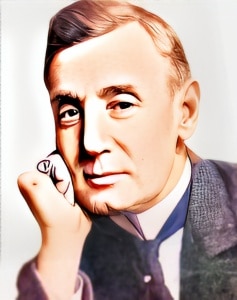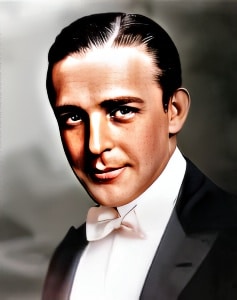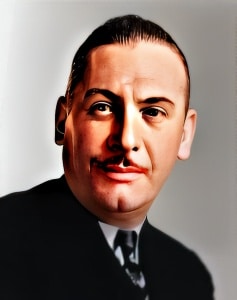 Erville Alderson, born on September 11, 1882, in Kansas City, Missouri, was a prolific American character actor known for his portrayals of strong-willed or wise men.
Erville Alderson, born on September 11, 1882, in Kansas City, Missouri, was a prolific American character actor known for his portrayals of strong-willed or wise men.
Over a career spanning nearly four decades, he left an indelible mark on the film industry, appearing in almost 200 films between 1918 and 1957.
Alderson’s journey into the world of cinema was marked by a versatile range of roles that showcased his acting prowess. He ventured into the realm of silent films and seamlessly transitioned into the era of talkies, leaving an enduring legacy.
In the early years of his career, Alderson married Lillian Worth, an American actress, on January 14, 1918, in Sydney, Cape Breton Island, Nova Scotia. However, by 1925, the couple had parted ways, marking the end of their union.
One of Alderson’s early film appearances was in “Her Man” (1918), where he played the character ‘Old Milt’ McBrian. This was just the beginning of a prolific filmography that showcased his ability to bring depth and authenticity to his roles.
In “The Good-Bad Wife” (1920), Alderson portrayed Col. Denbigh, displaying his versatility by taking on roles with varied characteristics. As a character actor, he had the skill to embody the essence of each role he undertook, making him a sought-after talent in the burgeoning film industry.
“ The White Rose” (1923) featured Alderson as the Man of the World, a testament to his ability to portray characters with a worldly and wise demeanor. His nuanced performances contributed to the success of the films in which he appeared.
Alderson’s work in “The Exciters” (1923), where he played Chloroform Charlie, further solidified his status as a reliable character actor. His on-screen presence added a layer of authenticity to the narratives, making the films more engaging for audiences.
The transition to the era of sound in cinema did not impede Alderson’s career. He continued to deliver impactful performances in films such as “Isn’t Life Wonderful” (1924) and “Sally of the Sawdust” (1925), where he played The Professor and Judge Henry L. Foster, respectively.
In “Lightnin'” (1925), Alderson took on the role of Courtroom Attendant, showcasing his adaptability to various character types. The 1920s marked a period of growth for Alderson as an actor, with his name becoming synonymous with reliable and compelling performances.
As the film industry evolved, so did Alderson’s career. The 1930s brought new opportunities and challenges. He appeared in films like “Guilty?” (1930), “The Lash” (1930), and “The Dawn Trail” (1930), showcasing his enduring relevance in an ever-changing cinematic landscape.
Alderson’s filmography extended into the 1940s, with notable roles in films such as “Santa Fe Trail” (1940), where he portrayed Jefferson Davis, and “Objective, Burma!” (1945). His contribution to “The Grapes of Wrath” (1940) as the Arkansas Storekeeper, albeit uncredited, added depth to the iconic film.
In “Sergeant York” (1941), Alderson played Nate Tomkins, demonstrating his ability to seamlessly blend into ensembles featuring Hollywood’s top talents. His performances were characterized by a genuine connection with the characters he portrayed, making each role memorable.
The post-war years saw Alderson continue to make valuable contributions to cinema. In “The Bishop’s Wife” (1947), he played Stevens, Mrs. Hamilton’s butler, adding a touch of charm to the film. His ability to infuse authenticity into supporting roles made him a respected figure in the industry.
“Again Pioneers” (1950) marked one of Alderson’s final film appearances, showcasing his enduring commitment to his craft. His career, spanning silent films to the golden age of Hollywood, reflected not only his adaptability but also his resilience in an ever-evolving industry.
Erville Alderson’s impact on the cinematic landscape goes beyond the number of films in which he appeared. He was a character actor in the truest sense, bringing life to the stories he told on screen. His portrayals of strong-willed and wise men left an indelible mark on audiences, making him a beloved figure in the history of American cinema.
Erville Alderson passed away on August 4, 1957, in Glendale, California, leaving behind a legacy that continues to be appreciated by film enthusiasts. He rests in lot 299, section 12 of the Hollywood Forever Cemetery near Los Angeles, a final tribute to a man whose contributions to cinema will forever be remembered.
Loading live eBay listings...




